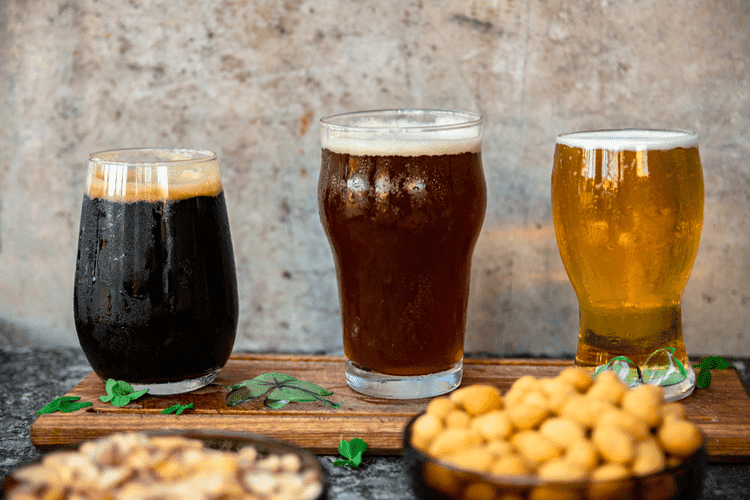Being close with an alcoholic narcissist can be emotionally draining, and it’s crucial to take care of yourself. The narcissist-like behavior of some alcoholics may only be a result of their addiction—it may not be how they really are when sober. Recognizing these signs of covert abuse and manipulative patterns is essential in identifying individuals who may be covert narcissist alcoholics. Understanding these behaviors can help in setting boundaries and seeking appropriate support for both the individual struggling with alcoholism and those affected by their manipulative actions.
Treatment For Co-occurring Alcoholism and Narcissistic Personality Disorder

The combination of narcissistic tendencies and alcohol abuse can result in more aggressive and violent behavior, particularly towards their loved ones. It’s crucial to understand the complexities of narcissistic behaviors and addictions to effectively recognize and address the destructive patterns exhibited by female narcissists. There doesn’t appear to be a significant relationship between narcissistic personality disorder and substance use relapses. But, when people with both AUD and NPD go back to drinking, they will probably hide or deny it. They may also feel like they failed and blame someone else for their failure. This is why simultaneous treatment of both disorders is essential.
Strategies for Dealing With Covert Narcissist Alcoholics
They may be very marijuana addiction fragile and require lots of affirming attention as well as being damaging to those around them. Untreated narcissism and alcoholism devastate individuals, families, and communities. The fact that other people bear the brunt of the adverse side effects sets NPD apart from most other disorders. The person with the disorder is often the last to experience consequences as they manipulate others to protect themselves. Clinical narcissists are obsessed with themselves to the point of not being able to form healthy relationships.
Understanding Covert Narcissism
If you are an enabler in a narcissist’s life, it is important to recognize your role in the dynamic and take steps to change it. This may involve setting boundaries with covert narcissist alcoholic the narcissist, seeking support from a therapist or support group, and learning to prioritize your own needs and well-being. Do you know someone who struggles with alcoholism and also displays patterns of narcissism?


Narcissism is a personality trait expressed as selfishness, an extreme sense of entitlement, attention seeking, and a lack of empathy. To cope with individuals seeking power and control through manipulation, it’s essential to prioritize self-protection. Setting clear boundaries is key to avoid enabling their harmful behavior and protect oneself from being caught in their web of manipulation. The intricacies of dealing with a covert narcissist require a delicate approach that considers the complexity of their tactics. As we navigate through the layers of their deceptive facade, it becomes evident that understanding their subtle behaviors is key. However, what lies beneath the surface may surprise you, urging us to proceed with caution and a heightened sense of awareness.
There is much research to suggest a strong link between narcissism and problematic sexual behavior, notably infidelity and sexual assault. The same factors that drive the problematic use of alcohol and drugs can also drive sex addiction. While navigating the terrain of living with an alcoholic narcissist, it’s essential to adopt strategies that protect your emotional well-being. Establishing boundaries, seeking professional help, and fostering a network of support can create a safer and more manageable environment.
- Although identifying a covert narcissist in our social circles can be challenging, it is important to recognize the potential dangers.
- Unfortunately, this can make them difficult to be around for their loved ones.
- A covert narcissist alcoholic may highlight their drinking to get attention, but will internally believe that everything is under control and therefore be unwilling to take steps to change it.
- Narcissists may also have difficulty accepting responsibility and may seek new sources of narcissistic supply.
While aggressive behaviors aren’t inherent symptoms of Narcissistic Personality Disorder (NPD), covert narcissist alcoholics may exhibit aggression in certain circumstances. When looking for signs of covert narcissism in addiction, several key indicators emerge, shedding light on the underlying issues driving the individual’s behavior. The table below outlines these signs, providing insight into the intersection of covert narcissism and addictive tendencies. Striking a balance between these two debilitating conditions is crucial, as the intersectionality can drastically affect an individual’s https://dev-hoffaz.pantheonsite.io/women-s-sober-house-united-states/ life and relationships. The blend of narcissism and alcoholism creates a complex dynamic that requires careful navigation and understanding. Understanding this complex interplay is crucial for effective treatment and support.
Moreover, alcohol addiction may hinder female narcissists from acknowledging their harmful actions and seeking help. Like overt narcissism, covert narcissism may have roots in genetics, childhood trauma and learned behavior picked up from parents or other caregivers. You should start by exploring peer support groups like Al-Anon that help families and loved ones living with people with AUD.
